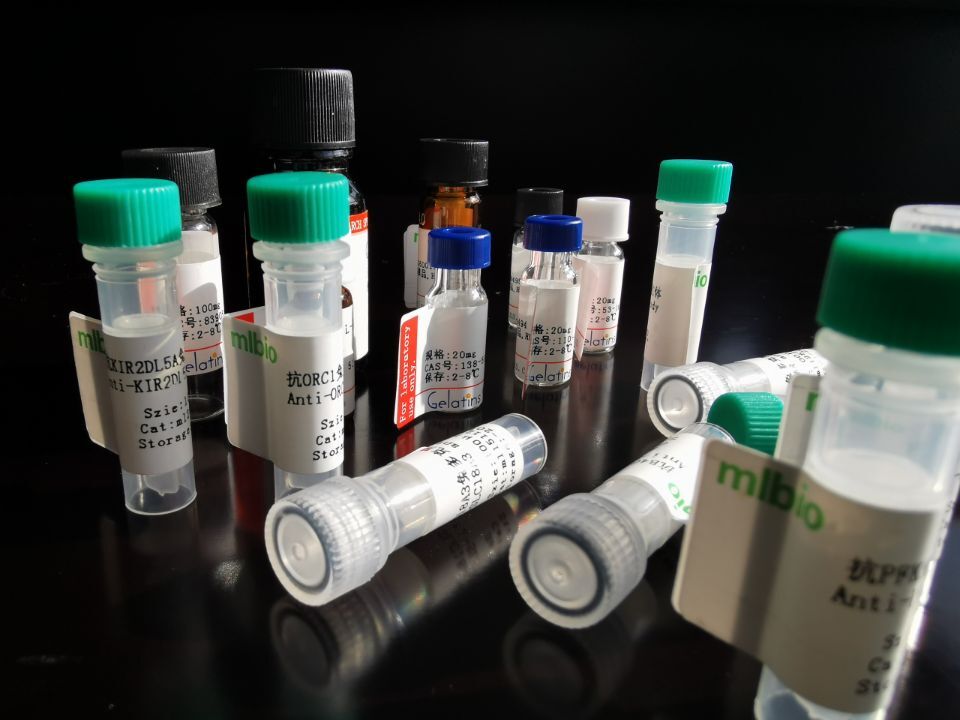中文名稱: RHEBL1 抗原(重組蛋白)
英文名稱: RHEBL1 Antigen (Recombinant Protein)
別 名: Ras homolog enriched in brain like 1; RHEBL1c
相關(guān)類別:抗原
儲 存: 冷凍(-20℃)
概 述
技術(shù)規(guī)格
|
Full name: |
Ras homolog enriched in brain like 1 |
|
Synonyms: |
RHEBL1c |
|
Swissprot: |
Q8TAI7 |
|
Gene Accession: |
BC027482 |
|
Purity: |
>85%, as determined by Coomassie blue stained SDS-PAGE |
|
Expression system: |
Escherichia coli |
|
Tags: |
His tag C-Terminus, GST tag N-Terminus |
|
Background: |
RhebL1 (ras homolog enriched in brain-like protein 1), also known as Rheb2 or GTPase RhebL1, is a 183 amino acid protein that belongs to the small GTPase superfamily and Rheb family. Localizing to the cell membrane as well as the cytoplasm, RhebL1 is ubiquitously expressed and is increased two-fold in many tumor cell lines. RhebL1 exhibits GTPase activity and may activate NF-kappa-B-mediated gene transcription. Regulating the activity of Rictor, RhebL1 also promotes signal transduction. RhebL1 exists as two alternatively spliced isoforms and is encoded by a gene that maps to human chromosome 12q13.12 and mouse chromosome 15 F1. Human chromosome 12 encodes over 1,100 genes and comprises approximately 4.5% of the human genome. Chromosome 12 is associated with a variety of diseases and afflictions, including hypochondrogenesis, achondrogenesis, Kniest dysplasia, Noonan syndrome and trisomy 12p, which causes facial developmental defects and seizure disorders. Binds GTP and exhibits intrinsic GTPase activity. May activate NF-kappa-B-mediated gene transcription. Promotes signal transduction through MTOR, activates RPS6KB1, and is a downstream target of the small GTPase-activating proteins TSC1 and TSC2. |
 購物車
購物車 幫助
幫助
 021-54845833/15800441009
021-54845833/15800441009
